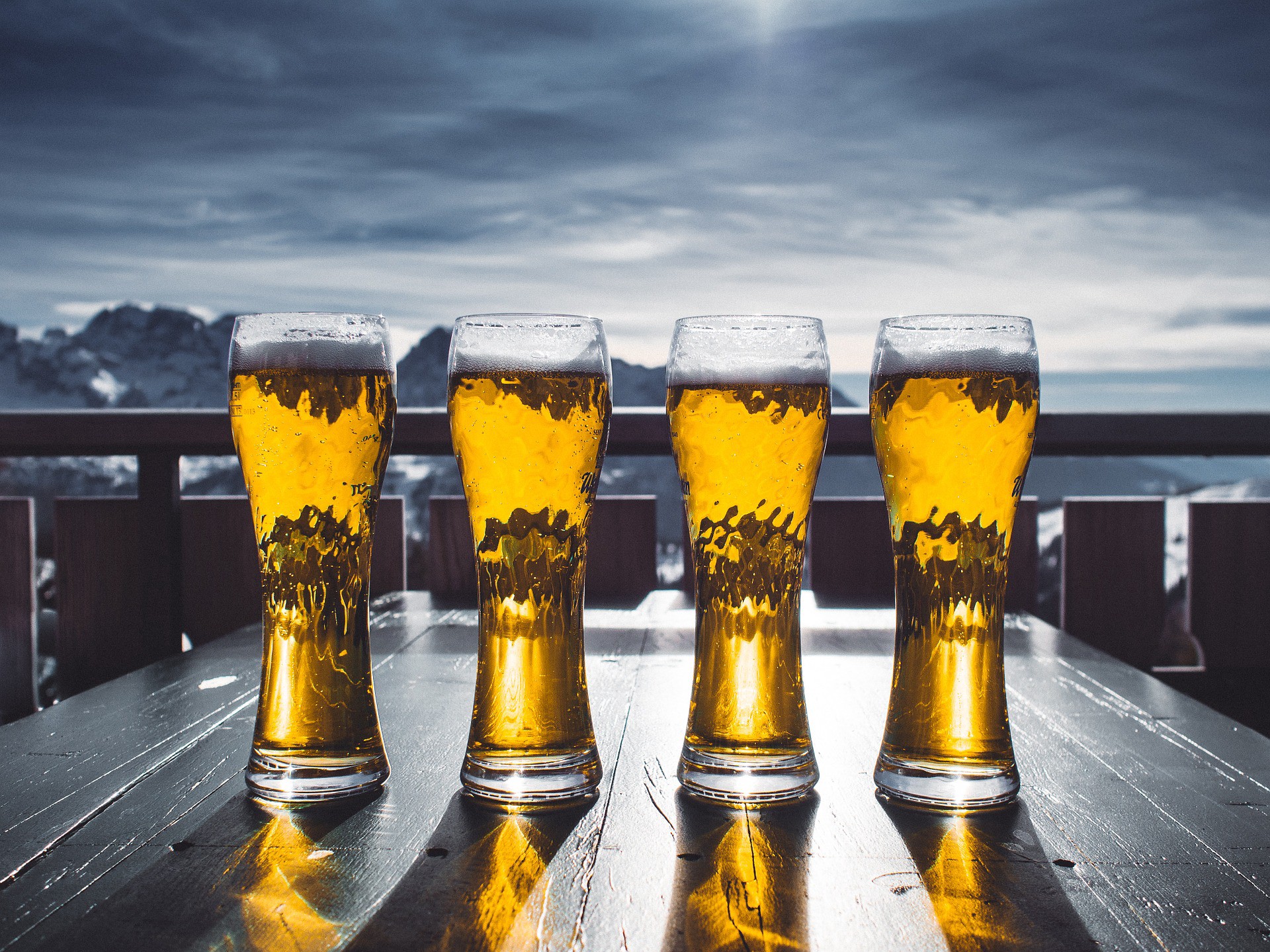
 In recent years, more and more people are becoming interested in healthier lifestyles and part of that is eating organic foods. What’s “organic” signify? The food is produced without using most conventional pesticides; fertilizers are synthetic; there are no hormones or antibiotics given to livestock.
In recent years, more and more people are becoming interested in healthier lifestyles and part of that is eating organic foods. What’s “organic” signify? The food is produced without using most conventional pesticides; fertilizers are synthetic; there are no hormones or antibiotics given to livestock.
Interestingly, Jon Cadoux, the founder of Peak Brewing Co, said this about this organic movement: “Organic is not a new movement. Our grandparents grew up eating organic foods, although it wasn’t called that.” It’s just going back in time.
Brewer’s are also taking this trip backwards and tapping into the health conscious members of society by brewing organic beer. This, of course, is my favorite organic food, and it’s really a drink.
What constitutes an organic beer? Ninety-five percent of its ingredients must be grown organically, that is, free of the use of chemicals and pesticides. Beer is comprised of nearly that much grain: barley, wheat, oat, rye or even sorghum. Hops are a small portion of the recipe and there are limited amounts of organically grown hops. Some breweries have even commissioned local farmers to grow organic hops specifically for use in a line of organic brews. Other ingredients in beer, namely water and yeast, are exempted from being organic products.
There are approximately a dozen or more domestic breweries producing organic beers. Among them is Peak Brewing, whose founder was quoted above. Another prominent organic brewer is Otter Creek Brewing, owned by the Wolaver family. They produce six organic beers. I was able to sample some at the Great American Beer Festival last year. The brown ale was comparable to any of the other browns at any of the tables. They also offer a Belgian wit and an oatmeal stout. The wit is among my favorite styles, spicy and memorable. I’d love to sample the organic version.
Also brewing organic are a couple of names you may be familiar with: Samuel Smith and Anheuser-Busch. That’s right, the Big Brewer itself is stepping into the organic beer world. They brew Wild Hops lager and Stone Mill pale ale.
Prior to my personal boycotting of anything Budweiser, I tried the Wild Hops lager. It wasn’t bad, if not spectacular. It was an orange beer with a nice, white head. It’s a lager yet it lacked the smoothness you’d expect in a lager. It definitely had more of the tang or bite of an ale. It did have a sweet finish.
Samuel Smith brews an organic ale and lager. Since their other beers are all classic’s I’d like to see how their organic offerings measure up. Another great organic beer is New Belgium’s Mothership Wit. It’s a beautiful wheat beer, very milky yellow in color and acidic in taste. It’s the perfect beer for a good Italian dinner or to accompany some creamy cheese.
The cost of organic beer isn’t much different than the cost of a good craft beer. That’d be around $8 – $9 here in Kingman so the choice to drink healthy won’t hurt your budget too much. There are a couple of options for finding organic beers in town. Smiths Food & Drug on Stockton Hill road carries the Wild Hops lager from Budweiser as does Wal-Mart.
For Mothership Wit, visit Hualapai Mountain Kwik Stop. It’s a little gas station and in a walk-in cooler in the back they carry a great selection of craft beers. I spoke with their beer guru and he said he’d have some Samuel Smith’s organic beers by next Friday.
Be sure to check out various beer blogs in the next few weeks since they will all be buzzing about organic beers. You’re likely to pick up some good facts about organic beer.

